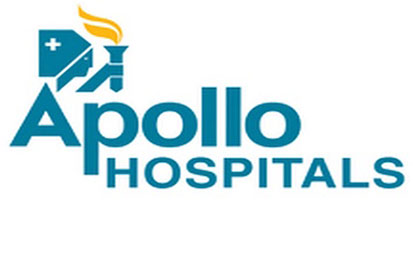APOLLO HOSPITALS’ PIONEERING USE OF DRONE SINCE 2018 FOR MEDICAL PURPOSES SEES FRUITION WITH NEW DRONE DELIVERY PILOT PROGRAMME FOR COVID-19 VACCINES
The new Drone Delivery Pilot Programme for COVID-19 Vaccines that starts today in India is testament to the pioneering efforts of Apollo Hospitals in the use of drones for medical purposes. The new drone delivery

The new Drone Delivery Pilot Programme for COVID-19 Vaccines that starts today in India is testament to the pioneering efforts of Apollo Hospitals in the use of drones for medical purposes. The new drone delivery pilot program which was launched today is the first in Asia to deliver COVID-19 vaccines by drones have been organised by the World Economic Forum in partnership with the state government of Telangana, Apollo Hospital’s HealthNet Global and GOI’s NITI Aayog.
Apollo Hospitals has been a forerunner in the use of UAV drone technology with advanced capabilities including artificial intelligence (AI) in responding to emergencies and disaster. The successful Emergency Medical Services (EMS) drone demonstration in 2018 was the culmination of innovation and ideation on the use of drone technology for supporting disaster response and emergency medical care at Apollo Hospitals.
The demonstration of an accident scenario had the hospital EMS drone successfully flying unhindered to the site, relaying details of the accident through a video feed and seamlessly integrating with the existing disaster response protocols at Apollo Hospitals.
Audio-video communication capability through the drone permits doctors at the base to supervise and deliver instructions for life-saving CPR (cardio-pulmonary resuscitation) to first responders or even laypersons to render first aid and start CPR before doctors arrive. In emergencies such as the stroke, the drone can also be used to carry blood samples from an acute stroke patient to the laboratory which can help in early diagnosis by cutting down on the turnaround time. The drone can also transport and deliver medications to the onsite emergency unit attending to the stroke patient.
Dr. Sangita Reddy, Joint Managing Director, Apollo Hospitals Group said, “It was in September 2018 to mark Apollo Hospitals’ 35th anniversary that the use of life-saving EMS response drones in an accident or disaster scenario was successfully demonstrated. The demo of the Apollo EMS drone showed the capabilities and fantastic potential of UAVs (Unmanned Aerial Vehicles) for delivering emergency medical care in an accident or disaster scenario. The demonstration has proven to be a prescient event and continued work on the same have contributed to preparations for the trials for the delivery of MMR, influenza and COVID-19 vaccines in the Telangana. Drones will be an important part of last-mile delivery of healthcare along with telemedicine ensuring ta of delivery of care when and where needed the most.”
Drones can help deliver timely care without being bound by issues of accessibility due to traffic, terrain and distance. EMS drones with advanced capabilities like audio-video broadcast, GPS navigation, fully automated and predetermined flights boosted by AI will change the face of healthcare delivery especially in emergency situations.






